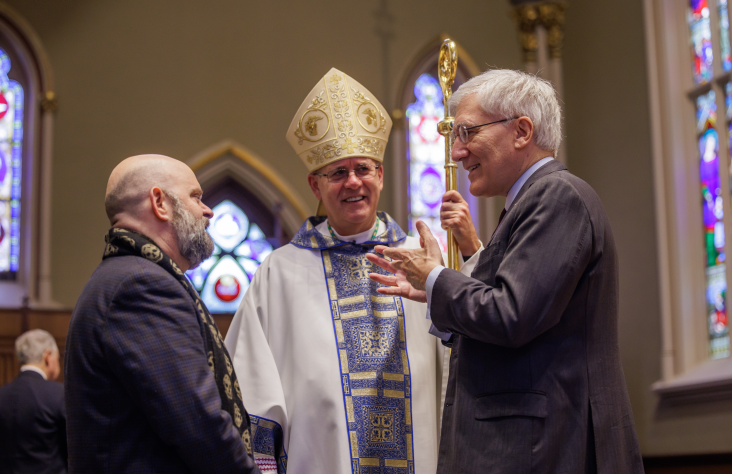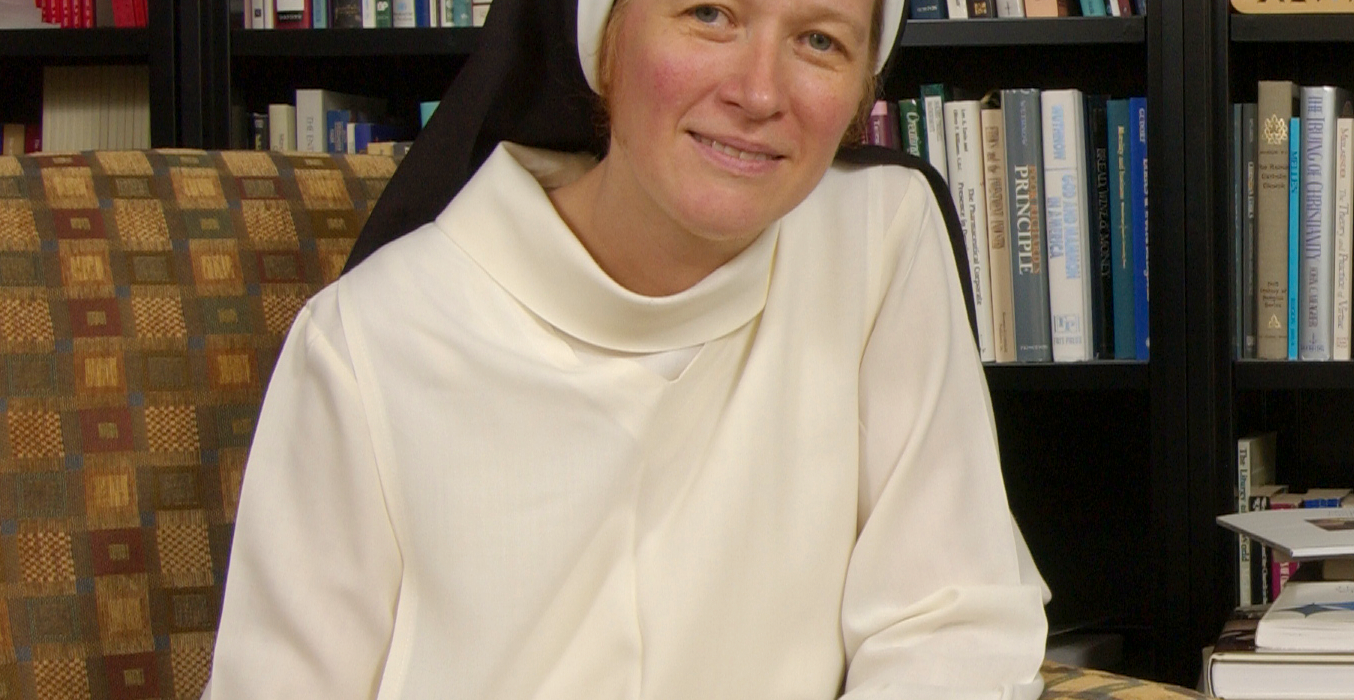February 14, 2017 // Special
Sister Helen Alford to explore the purpose of business Feb. 28
An international voice for ethics and social justice in the workplace is coming to Fort Wayne as part of the Servus Omnium Lecture series at the University of Saint Francis.
Sister Helen Alford, who worked for Michelin Tire, British Aerospace and other European companies before becoming a Dominican nun, will be the featured speaker at the fifth installment of the series, which will be presented at the downtown campus on Feb. 28, the day before Ash Wednesday.
Sister Alford is a professor of economics and ethics at the prestigious Pontifical University in Rome, and an advisor to the United Kingdom’s blueprint for Better Business, a consortium of economic and intellectual leaders who about a decade ago came together to explore how business can and should operate for the purpose of serving society for mutual benefit — with profit as a vital outcome. She has written several books, including “Managing As If Faith Mattered” with Michael Naughton of Marquette University.

Economics expert and Dominican Sister Helen Alford presents the upcoming Servus Omnium lecture at the University of Saint Francis in Fort Wayne. She will explore the intersection of business, profit and the common good.
Click here for photos from this event.
The event will begin at 7 a.m. with a blessing from Bishop Kevin C. Rhoades, followed by a Mardi Gras breakfast. Sister Alford will begin speaking at 7:45 a.m., and a question-and-answer session will conclude at 8:45 a.m.
Tickets are $10 in advance, $15 at the door. Tables may be purchased in advance for $80 and corporate sponsorships are available. Information is available through Dr. Lance Richey, dean of the USF School of Liberal Arts and Sciences, at (260) 399-8122 or [email protected].
Sister Alford’s address is titled, “Have You been served? Human Dignity, the Common Good and the Purpose of Business.” The topic is part of her life’s work, she said, during a recent interview with Today’s Catholic. It examines the role and impact of ethics and Christian social thought in the field of management, especially as it regards Catholic social teaching and sustainability.
She intends to focus her remarks on the purpose of business and what makes it work.
“Too often business leaders confuse specific business goals — like making a profit — with the purpose of business,” she said. “While generating profit may be one of the goals of business, it can only do this because its purpose in some, perhaps imperfect, way is to make a specific contribution to the common good.
“Catholic social thought can help us be more realistic in the business world,” she added. Profit can only be attained, she then pointed out, because the business’ purpose in some way is to make a specific contribution to the common good.
After the economic crisis of 2009 — the most serious since the Great Depression, in the view of many — there has been general dissatisfaction with business and a loss of trust, especially in the financial sector. There has also been a call for tougher government regulations. But more stringent regulations could make things worse, Sister Alford insists. “If we are to rebuild trust in business, business needs a purpose that genuinely contributes to society’s good.”
Incorporating Catholic social thought into business is not only a good and proper thing to do, she believes, it also brings a significant competitive advantage. Catholic social thought is a more advanced form of what is being discussed in major business schools, she said, and what is needed is the involvement of people in decision-making to enable them to grow in their mastery — rather than just giving them financial incentives to do better.
The whole idea of “shared value,” as presented by Michael Porter and Mark Kramer from Harvard Business School, is a kind of simplified version of the way Catholic social thought is concerned about the common good, she said. “So I really encourage Catholic business people in the U.S. to study Catholic social thought and to start thinking practically about how it could be put into practice in their own businesses.”
Sister Alford considers Catholic social thought as a house’s foundation that supports the entire structure. “A business isn’t just about profits for stockholders,” she noted — a point on which she intends to elaborate.
Sister Alford enjoyed her time in the word of business, which led to her ultimate life’s work — promoting social justice and ethics as a Dominican nun. She had occasionally thought about becoming a nun earlier in life, but didn’t decide to enter the sisterhood until the early 1990s.
“I couldn’t see it at the time, but God was calling me. Looking back, I can see I was being lead in this direction — the good Lord was preparing me.”
The USF Servus Omnium series initiated in 2013; “Servus Omnium” is Latin for “Servant of All,” according to Dr. Lance Richey, spokesperson for the series. St. Francis of Assisi, in a letter to his brotherhood, called himself the “servant of all,” explained Richey, which embodied the Franciscan ideal of servant leadership.
The best news. Delivered to your inbox.
Subscribe to our mailing list today.






